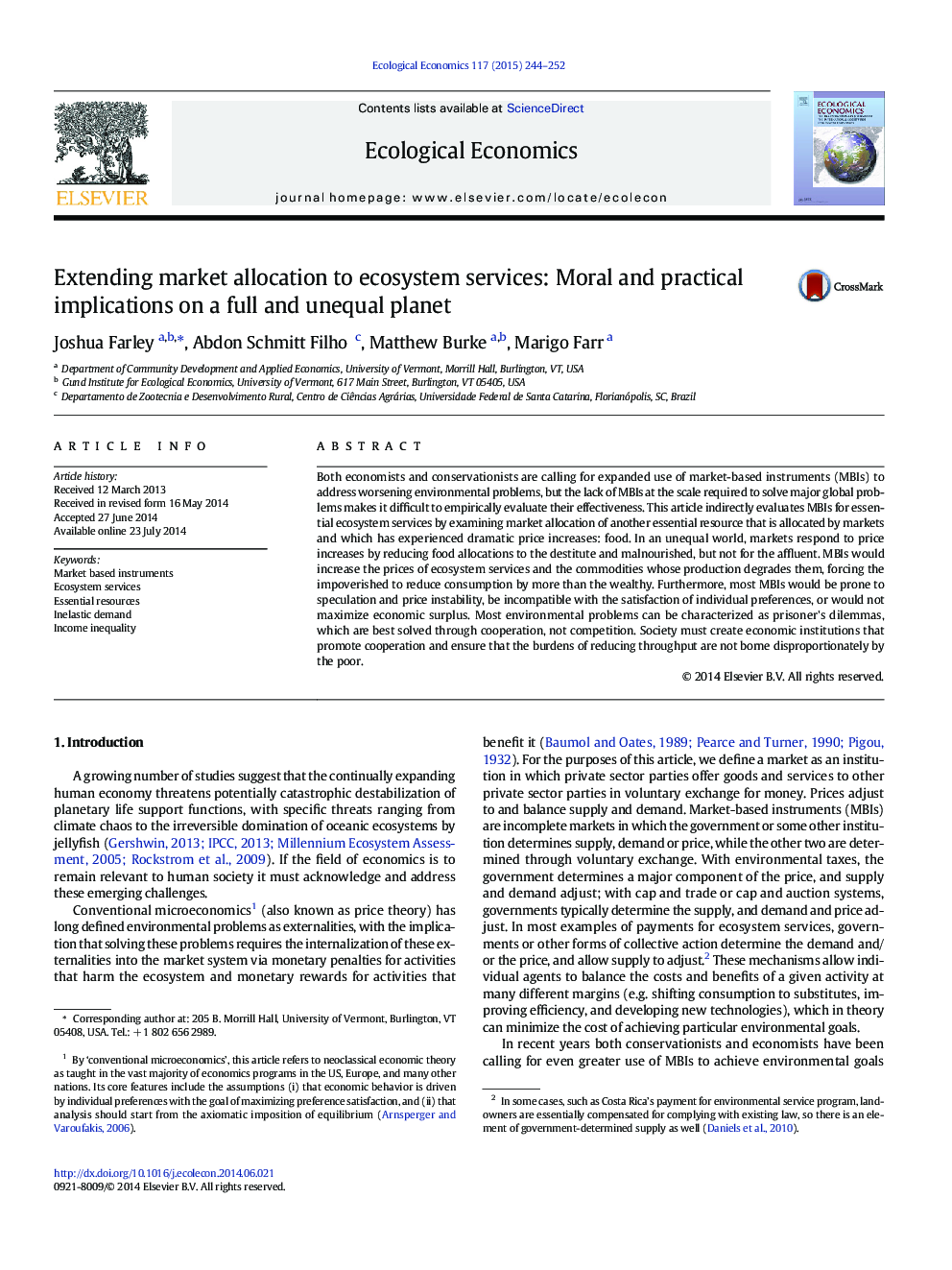| کد مقاله | کد نشریه | سال انتشار | مقاله انگلیسی | نسخه تمام متن |
|---|---|---|---|---|
| 5049295 | 1476362 | 2015 | 9 صفحه PDF | دانلود رایگان |
- There is a growing call for market based solutions to environmental problems.
- Markets may allocate essential resources to those with the lowest marginal utility.
- Applying market logic to ecosystem services may be inefficient and unjust.
- Institutions for allocating ecosystem services should be based on cooperation.
Both economists and conservationists are calling for expanded use of market-based instruments (MBIs) to address worsening environmental problems, but the lack of MBIs at the scale required to solve major global problems makes it difficult to empirically evaluate their effectiveness. This article indirectly evaluates MBIs for essential ecosystem services by examining market allocation of another essential resource that is allocated by markets and which has experienced dramatic price increases: food. In an unequal world, markets respond to price increases by reducing food allocations to the destitute and malnourished, but not for the affluent. MBIs would increase the prices of ecosystem services and the commodities whose production degrades them, forcing the impoverished to reduce consumption by more than the wealthy. Furthermore, most MBIs would be prone to speculation and price instability, be incompatible with the satisfaction of individual preferences, or would not maximize economic surplus. Most environmental problems can be characterized as prisoner's dilemmas, which are best solved through cooperation, not competition. Society must create economic institutions that promote cooperation and ensure that the burdens of reducing throughput are not borne disproportionately by the poor.
Journal: Ecological Economics - Volume 117, September 2015, Pages 244-252
